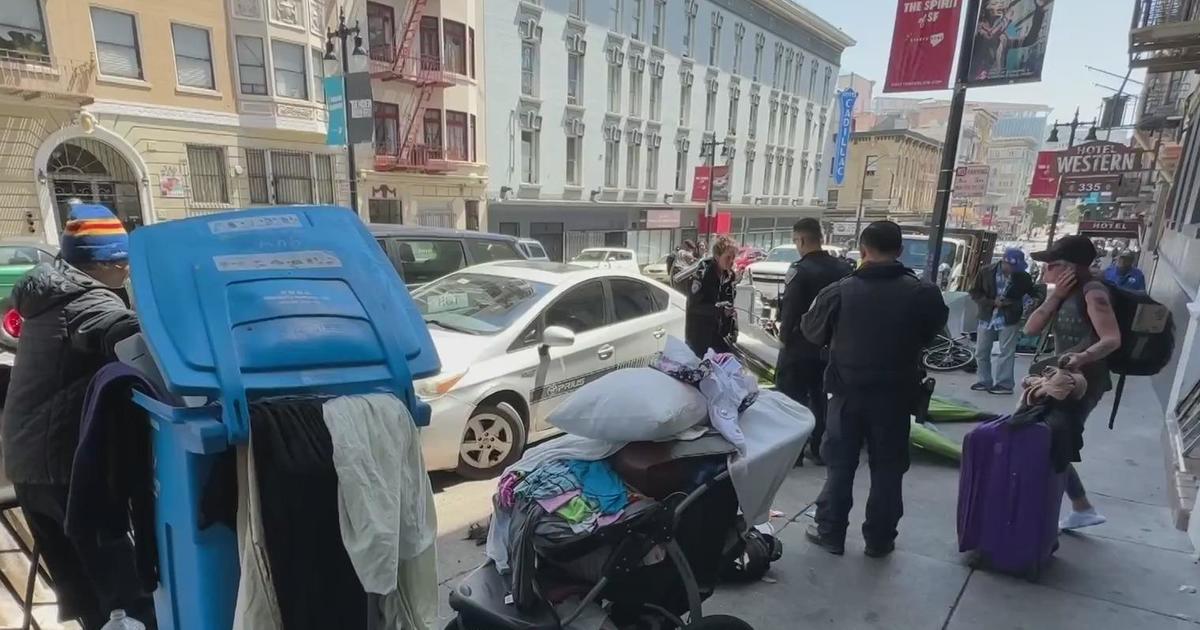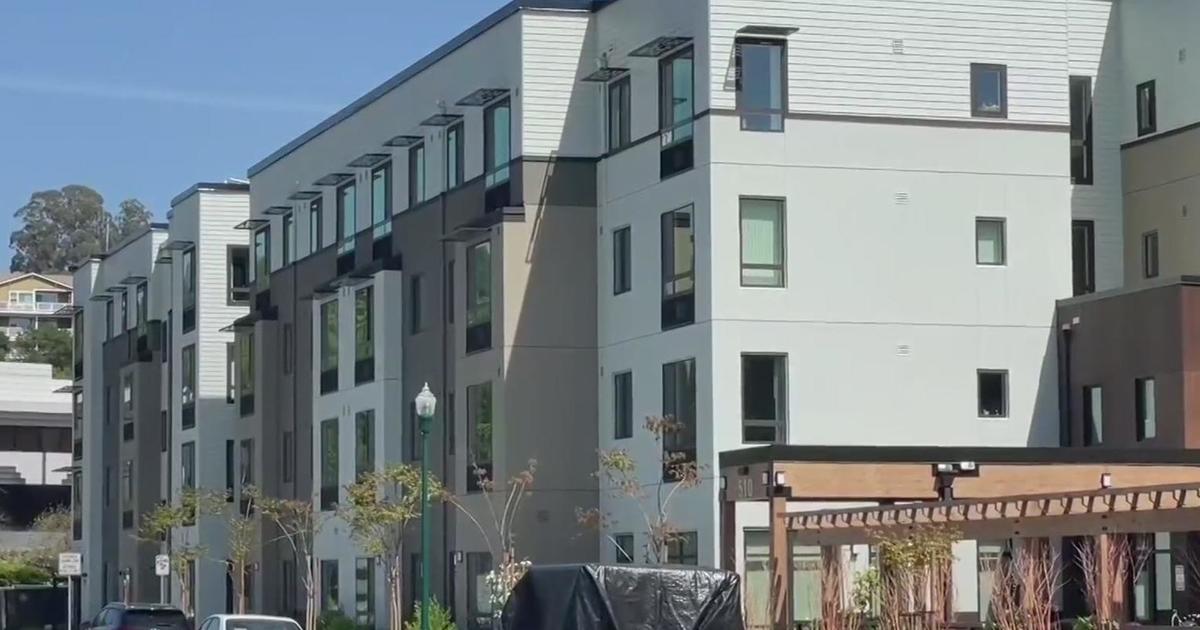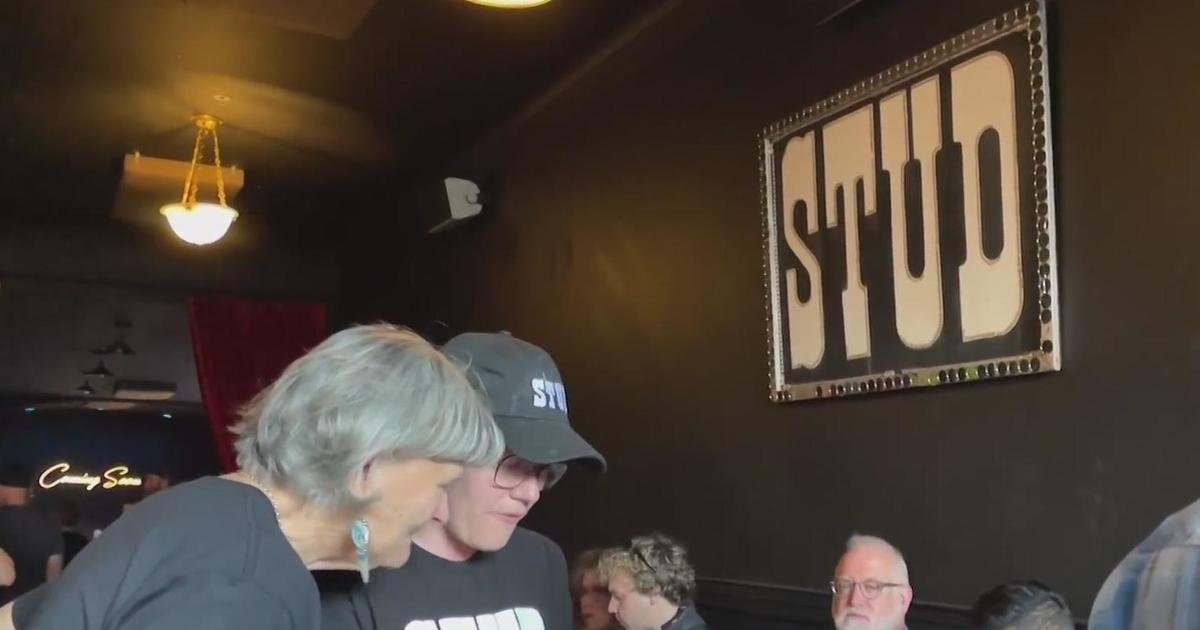Brown Asks Lawmakers To Delay California Budget Vote
SACRAMENTO (CBS / AP) -- On the eve of his self-imposed deadline, Gov. Jerry Brown on Wednesday asked lawmakers to delay planned votes on his budget proposal to give him more time to negotiate with reluctant Republicans.
The delay, for an unspecified length of time, did not stop parent groups, teachers, law enforcement officials and other interests from lobbying lawmakers to call a special election to extend temporary tax increases.
The Democratic governor said schools and public safety stand to benefit the most if voters support his request to extend higher sales, vehicle and income taxes for five years to raise $9.2 billion annually, as well as continue lower dependent tax credits. The taxes were enacted two years ago but are scheduled to expire this year.
Brown needs a two-thirds vote in the Assembly and Senate to place the tax question before voters in a June special election, but so far Republican lawmakers have refused to go along. He also has called for $12.5 billion in spending cuts.
"Parents from across the state are all standing up together — in unity — in saying 'We want the right to vote in June,'" said Crystal Brown, a San Francisco mother of three who helped launch the "Let Us Vote" campaign, which has generated 30,000 parent letters to lawmakers. "We feel like our kids are caught in the crossfire. Certainly, if we don't have the right to at least vote, then they have definitely lost."
Brown had set Thursday as the deadline for the Legislature to put the tax question before voters in a June election but asked for a delay Wednesday after engaging "in positive and productive budget discussions with legislators on both sides of the aisle," said his spokesman, Gil Duran.
Duran would not say how long a delay was needed.
Most of the talks have been happening with lawmakers in the Senate, where five Republicans are negotiating long-sought GOP demands that include a spending cap, freezing pension benefits for current state and local government workers, and reducing state regulations.
Brown has indicated he is open to negotiating and said Republican requests for tax and regulatory reform have merit. However, he cautioned that issues that have been simmering for decades cannot be resolved swiftly.
"We can take a piece of it, but we can't take everything including the kitchen sink and throw it on the table and before the end of this week come up with an answer," the governor said earlier this week.
Republicans say taxes are not the answer to the state's financial problems, but parent and teacher groups concerned about larger class sizes and a shorter school year are demanding they let Californians vote on the issue.
Michelle Parker, a 35-year-old mother of three from San Francisco, said parents and teachers are asking all lawmakers to do what's best for children. Parker, who is with the California State PTA and Educate Our State, a grass-roots parents group that is leading the "Let Us Vote" campaign, said the group is targeting potential swing lawmakers and even some Democrats who have said they oppose the deep spending cuts.
"There are some Democrats, like my Senator, Leland Yee, who says he's so pro-education. He's not an automatic yes," Parker said, referring to the Democratic senator from San Francisco.
Also Wednesday, two watchdog agencies — the state auditor and Little Hoover Commission — responded to a previous request from Brown for ways to improve government efficiency and reduce waste.
The auditor handed in a list that included such proposals as releasing medically incapacitated inmates and making it easier to pass tax increases in the Legislature by lowering the vote threshold from two-thirds to a majority or 55 percent.
Brown already has proposed some savings through efficiencies.
Under his budget plan, the state would realign government to shift more responsibility to counties and eliminate local redevelopment agencies to leave more local tax dollars for schools, fire protection, police and other services. His $12.5 billion in spending cuts would reduce college funding, state employee salaries, welfare benefits, health insurance for the poor, among other effects.
"We're looking for one vote, which will be a vote to extend the taxes, to apply the money locally to schools, public safety," Brown said. "That to me, I think that's very appropriate."
Anticipating the possibility of deep cuts, the Los Angeles Board of Education, which oversees the state's largest school district, recently released a worst-case budget plan that calls for eliminating thousands of jobs, larger class sizes and reducing magnet and preschool programs. In the small districts like Redwood City in the Bay Area, kindergarten class sizes have gone from 22 students two years ago to 31 this year.
In Redwood City, school board member Shelly Masur, said the district would have to shave three days off the school year even if Brown's plan to extend the tax increases makes the ballot and voters approve. The district would cut 10 days without it.
"California educates one in eight students (nationwide). We should be leading the way in educating the work force for the next generation, but these continued cuts have put us into a downward spiral," Masur said. "The governor's balanced plan and revenue extension would at least stop the downward spiral."
California State University students and faculty members recently organized rallies and demonstrations across the state to protest further budget cuts. Advocates say the CSU system has lost about $1 billion and let go more than 3,000 faculty members, cut course offerings and raised student fees. They say tens of thousands of eligible students have been turned away or given up because of rising costs and inability to get classes.
Law enforcement groups, many which have endorsed Brown's plan in concept for counties to take on more inmates and parolees, expressed concern that the state will force counties to take on more responsibility even if the tax extensions are not approved.
Other groups are targeting the Central Valley, where many Republican lawmakers hold seats. The faith-based group People Improving Communities through Organizing has held prayer vigils and rallies around Bakersfield, Fresno, Merced, Stockton and Modesto.
"Our message is simple," said John Harris, an Elder with Greater White Rose Church of God in Christ and a member of People and Congregations Together for Stockton. "It's our future, and our voice needs to be heard. Let us vote."
(Copyright 2011 by CBS San Francisco. All Rights Reserved. This material may not be published, broadcast, rewritten, or redistributed. Wire services may have contributed to this report.)



